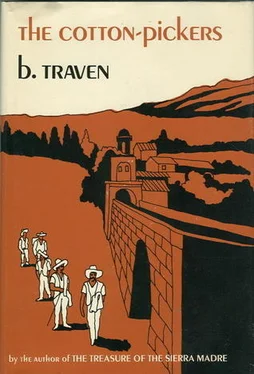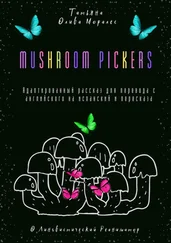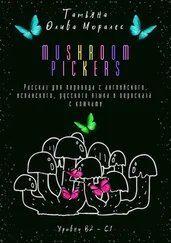B. Traven - The Cotton-Pickers
Здесь есть возможность читать онлайн «B. Traven - The Cotton-Pickers» весь текст электронной книги совершенно бесплатно (целиком полную версию без сокращений). В некоторых случаях можно слушать аудио, скачать через торрент в формате fb2 и присутствует краткое содержание. Год выпуска: 1969, Издательство: Hill and Wang, Жанр: Проза, на английском языке. Описание произведения, (предисловие) а так же отзывы посетителей доступны на портале библиотеки ЛибКат.
- Название:The Cotton-Pickers
- Автор:
- Издательство:Hill and Wang
- Жанр:
- Год:1969
- ISBN:нет данных
- Рейтинг книги:3 / 5. Голосов: 1
-
Избранное:Добавить в избранное
- Отзывы:
-
Ваша оценка:
- 60
- 1
- 2
- 3
- 4
- 5
The Cotton-Pickers: краткое содержание, описание и аннотация
Предлагаем к чтению аннотацию, описание, краткое содержание или предисловие (зависит от того, что написал сам автор книги «The Cotton-Pickers»). Если вы не нашли необходимую информацию о книге — напишите в комментариях, мы постараемся отыскать её.
—Book World
The Cotton-Pickers — читать онлайн бесплатно полную книгу (весь текст) целиком
Ниже представлен текст книги, разбитый по страницам. Система сохранения места последней прочитанной страницы, позволяет с удобством читать онлайн бесплатно книгу «The Cotton-Pickers», без необходимости каждый раз заново искать на чём Вы остановились. Поставьте закладку, и сможете в любой момент перейти на страницу, на которой закончили чтение.
Интервал:
Закладка:
Jeannette laughed. “Not in my case. You don’t know me, yet! As I said to my father: My honor is that I never cheat anyone, least of all my husband when I have one. Before we ever come to a mutual agreement, I’ll tell him frankly how I got my money. If he rises above it, I’ll say, ‘All right, then, we’ll get married under these conditions: that you’ll never reproach me as to how I got my fortune, and that I’ll never reproach you for taking it easy on my money!”
“I’ll keep the money, but he’ll get enough so as not to have to ask me for every penny. And I’ll give him a trial run beforehand, just to make sure that I’m not betting on the wrong horse!”
So ended her story.
And the man who gets Jeannette will have cause to be thankful. If he isn’t a moral prig, he’ll discover in a week, yes, or in a night, that Jeannette is worth five times her fortune, for she’ll never let a marriage get dull. As I personally learned, Jeannette leaves no desires unfulfilled!
18
We arrived at the bakehouse about half past eleven. In order to reach the dormitory, and change into our work clothes, we had to pass through the bakehouse, where the men were hard at work.
The master saw us, and pulled out his watch. “It’s nearly twelve,” he said.
“I know,” I replied, “we’ve just seen the cathedral clock. And while we’re at it, I might as well tell you that I’m through.”
“Since when?”
“Since now.”
“Then you’d better tell the old man. He’s out front in the café.”
“I know. You needn’t tell me. I came in through the café.”
“And I’m turning in my time, too,” Antonio joined me. “Why do you both have to leave?” asked the master.
“We’re not a pair of suckers, to stay here and work eighteen hours a day,” said Antonio.
“You’ve been drinking,” said the master.
Antonio got belligerent: “What did you say?”
“Well, I ought to be allowed to say that it’s nearly twelve,” the master retorted. “We’ve been here working since ten, there’s so much to do.”
“You may say what you please, but not to us,” I put in. “You’re not our boss now.”
“All right,” said the master. “If that’s how it is, clear out at once. You needn’t sleep here, and there won’t be any breakfast for you in the morning, either.”
“We didn’t ask you for any,” Antonio replied, “and if we did want breakfast we wouldn’t come to you for the favor.”
With that, we went to the dormitory, stuffed our working rags into an empty sugar sack, and were about to leave when Antonio suddenly remembered something.
“Wait. We’ve left our two pesos in the old shoe, and we’d better get them. We’re not leaving our pesos for them to buy new pictures!”
We got our pesos and passed through the bakehouse once more.
“Who tore down the pictures?” asked the Czech.
“We did. Any objections?” Antonio snapped. “Speak up. We’re just in the mood. We sure ought to be able to do as we please with our own pictures.”
“I didn’t know that they belonged to you. Anyhow, you needn’t have torn them up,” said another worker.
“I don’t like indecent pictures,” Antonio replied. “If you must have stuff like that staring you in the face, you can buy it for yourselves. We don’t need such pictures, do we, Gales?”
“Not us! I’m glad to say that we don’t.” I spoke with great conviction. Then we went to Doux and asked for the money that was due us. “Come back tomorrow,” he told us.
“We know all about your tomorrows,” we said.
Antonio put his sack on the floor, leaned over the counter toward Doux, and raised his voice: “Will you give us our money now, or won’t you? Or must we call the police to make you pay us the wages we’ve earned?”
“Don’t shout like that, or the customers will hear you,” said Doux quietly, putting his hand in his pocket. “I’ll pay you. I’ve never owed one centavo for wages. Would you like a bottle of beer?”
“I don’t mind if I do,” replied Antonio. proud to accept it.”
We sat at a table and a waiter served us the beer.
“We don’t want to make Doux a present of skinflint,” I said. “He seemed to think we’d never have offered it to us.”
“Sure,” said Antonio. “That’s why I said yes, though I didn’t really want it!”
Doux didn’t ask us why we were leaving. These sudden departures were the norm here; he took no notice of them, and didn’t try to persuade us to stay, for he knew from experience that it would have been useless.
He went to the cash box and then brought over our money, put it down on the table, and disappeared behind the counter without another word or another look in our direction.
Antonio and I went to a coffee stall where we drank a glass of coffee and where the woman in charge allowed us to leave our sacks until the next morning, when we would return for breakfast. Then we went back to the girls, where life was more pleasant than in the bakehouse.
The next day, after a morning of loafing on benches in the plaza, we went to a boardinghouse, where we each reserved a bed for fifty centavos and deposited our bags in the baggage room.
Our names were duly registered and we were given room and bed numbers. Each room had six to eight beds, which were placed at random where there happened to be space for them.
Baths were available at any hour, day or night — shower baths at twenty-five centavos each. For this you got soap, towel, and a piece of rafia — a sort of straw washcloth. There was no faucet to regulate the flow of water, but a chain pull, forcing you to bathe with one hand while the other hand kept pulling the chain so the water would run. If you soaped yourself with both hands, the water would stop; this saved water, of course. After taking a shower we lay down for a long siesta.
About eight in the evening we got up and went into town again, planning to return later. We stopped at a bar. A tall man was standing around drinking tequila; he wore riding boots and spurs, his face was rough, and he sported a mighty mustache.
“Hi, there!” he called as we were going out. “Are you looking for work?”
“Maybe. What sort? Where?”
“Cotton-picking. In Concordia, for Mr. G. Mason. Usual pickers’ pay, and it’s near the railroad. The fare’s only three pesos sixty.”
“Are you authorized to hire?”
“Of course. Otherwise I wouldn’t be telling you.”
“All right. Let me have it on a slip of paper.”
He got himself a slip of paper from the bartender, then took a stump of a pencil from his shirt pocket and scribbled something on the paper.
I read the note: “Mr. G. Mason, Concordia. This man has come for the picking. L. Wood.”
I talked the matter of the job over with Antonio, but he decided against it. So the next morning I left Antonio at the boardinghouse and took the train to Concordia.
When I arrived I found Mr. Mason right away; he was in the field where many pickers were already busy and the work was well underway. But when Mr. Mason saw my note, he said: “L. Wood? Don’t know him. Never told him to send pickers to me. Don’t need any. I’ve got enough.”
“But you are Mr. G. Mason?”
“No, I am W. Mason.”
“Does a G. Mason live around here?” I asked.
“No.”
“Then it must mean you. The G must be a mistake, since you are picking here. How can that Mr. Wood, if that’s his real name, know that a Mr. Mason lives here and is just starting to pick cotton?”
The farmer looked doubtful. “I’ve no idea, no more than you. Anyhow, I don’t know anyone named Wood, and my first name begins with W not G.”
Читать дальшеИнтервал:
Закладка:
Похожие книги на «The Cotton-Pickers»
Представляем Вашему вниманию похожие книги на «The Cotton-Pickers» списком для выбора. Мы отобрали схожую по названию и смыслу литературу в надежде предоставить читателям больше вариантов отыскать новые, интересные, ещё непрочитанные произведения.
Обсуждение, отзывы о книге «The Cotton-Pickers» и просто собственные мнения читателей. Оставьте ваши комментарии, напишите, что Вы думаете о произведении, его смысле или главных героях. Укажите что конкретно понравилось, а что нет, и почему Вы так считаете.











